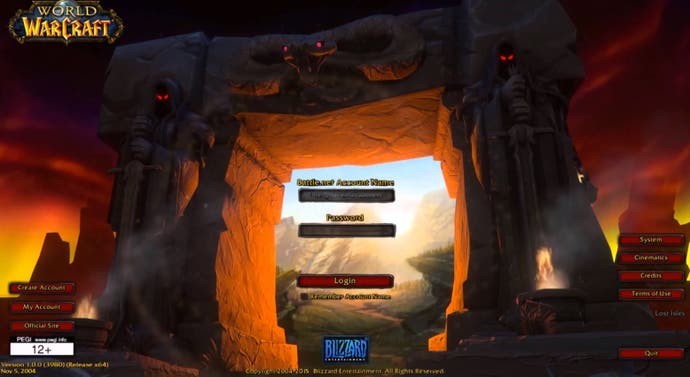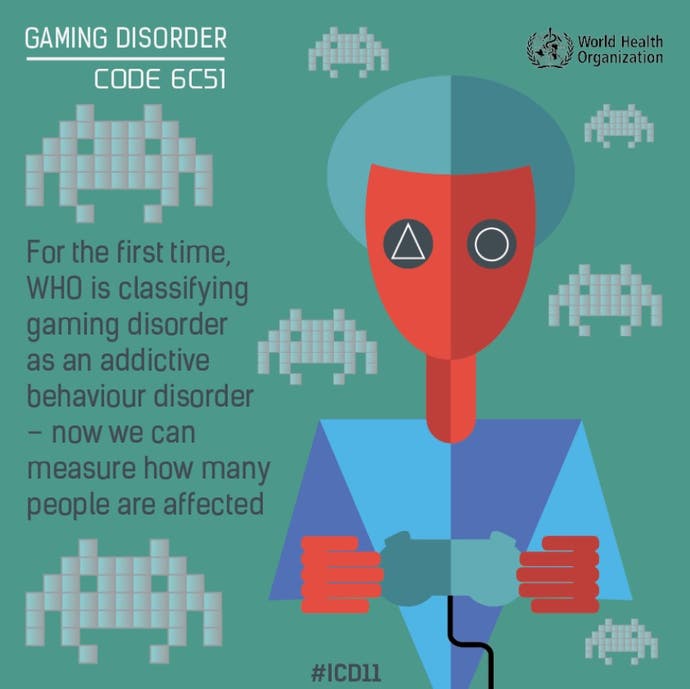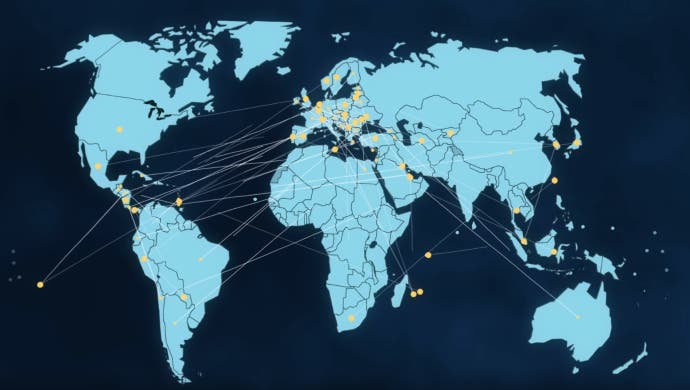It's time to stop running from gaming addiction
Talk to the hand.
Hi, I'm Wesley, and I was addicted to World of Warcraft.
I'm not talking about a, 'I played this game a lot because it's fun' kind of thing. I'm talking about a good old-fashioned, almost ruined my life kind of thing. Hold onto your legendary hats, things are about to get serious.
In early 2005 I started playing World of Warcraft with a few friends. I was living at my family home in South London with my then girlfriend of over five years. I was trying to make it as a journalist at a mainstream Sunday newspaper, but was told that in order to progress, I'd need to get some proper journalism training. So, I dropped down to one day a week at the paper, got some freelance media analysis work for some extra money, and thought about doing a course.
All the while, World of Warcraft became more and more important to me, and I devoted more and more time to it. I've thought long and hard about why this happened. Certainly there was a 'keeping up with the Jones'' effect at play here. I was desperate not to be left behind my friends as we frantically levelled up and devoured the then endgame content for loot. But a lot of it had to do with the amazing time I was having. World of Warcraft was my first MMO. I was left dumbstruck by its brilliance, by its world, by the fact I could log in at any time of day or night and know at least a few friends would be online and ready to chat over Teamspeak. World of Warcraft was the best game in the world for a good long time, and I was head over heels in love.
Eventually, all I'd do was play World of Warcraft. I'd play it long into the night then long into the morning. My girlfriend would wake up for work and find me still playing the game as she left the house. As the rest of my family woke, I'd think about going to sleep, but more often than not I didn't. I'd snatch sleep here and there, usually during the day, then wake up at dinner time, grab a quick something to eat - perhaps a tin of beans - then log on again. My girlfriend would come home from work and say hello, but I was too busy playing World of Warcraft to offer much in return. I had signed up for a raid and our tanks weren't going to heal themselves.

I started calling in sick to the newspaper - lying through my teeth to get out of the one day a week I had in the office. I'd do the data analysis here and there, but eventually that dried up. I fell into my overdraft, then began using my credit card to pay for bills. Money didn't seem to matter, as long as I could afford the subscription fee.
I wasn't blind to what was happening. My family was on my back all of the time about my lifestyle, and my girlfriend... let's just say she wasn't happy either. My time with the game caused arguments, fights and every so often a slam the door moment. At the time, I didn't think I was addicted to World of Warcraft. If someone had suggested it then, I would have laughed in their face. But now, over a decade later, I believe I was. I believe I was addicted to World of Warcraft.
It's because of my experience with World of Warcraft that the video game industry's instinctive fear of the World Health Organisation's new "gaming disorder" made me quite angry indeed. I shook my head as I read the joint statement, drafted by various trade organisations, that called on WHO to ditch its proposal to include gaming disorder in the final version of the International Classification of Diseases. In fact, I found the whole thing embarrassing.
The WHO's definition of gaming disorder seems entirely reasonable to me. The current version of ICD-11 - the 11th version of the International Classification of Diseases - defines gaming disorder as:
"Characterised by a pattern of persistent or recurrent gaming behaviour, which may be online or offline, manifested by: 1) impaired control over gaming (e.g., onset, frequency, intensity, duration, termination, context); 2) increasing priority given to gaming to the extent that gaming takes precedence over other life interests and daily activities; and 3) continuation or escalation of gaming despite the occurrence of negative consequences.
"The behaviour pattern is of sufficient severity to result in significant impairment in personal, family, social, educational, occupational or other important areas of functioning. The pattern of gaming behaviour may be continuous or episodic and recurrent. The gaming behaviour and other features are normally evident over a period of at least 12 months in order for a diagnosis to be assigned, although the required duration may be shortened if all diagnostic requirements are met and symptoms are severe."
That sounds a lot like what I went through with World of Warcraft.

Why are we, the game community, the game industry, trade bodies and, from what I've seen, a hell of a lot of people on social media, so worried by the WHO's gaming disorder? Are we scared it might signal some sort of censorship, some sort of government intervention? If gaming disorder is real, might some sort of law come into place that prevents developers from making the games we know and love?
Even if this were the case, to call on the WHO to ditch gaming disorder as a potential thing is so silly as to make the video game industry look juvenile. It reinforces the whole spotty kids playing alone in their bedroom rhetoric I thought we'd left behind. Video games are brilliant and fun and have educational, therapeutic and recreational value, just as this joint statement points out, but they are also complex, often problematic, sometimes cynical and occasionally exploitative.
Underneath it all, I think the reaction to the WHO's gaming disorder is about the fear of facing up to uncomfortable truths about game design. We celebrate games that are addictive but we refuse to call them addictive, even though they have been designed to be exactly that. Developers want you to become addicted to their games, which is understandable because if people are hooked on your game it suggests it's really fucking good. The grind, loot, loot boxes, levelling up, infinite progression, prestige, battle passes, experience points, the numbers, the numbers and even more numbers, all going up - this is the guts of popular video games today. Keep us in the game, keep us engaged, keep us caring and then the recurring revenue rolls in. In this context, it seems reasonable that something along the lines of a gaming disorder might actually be a useful thing to think about. To do the 'talk to the hand 'cos the face 'aint listening' thing to the WHO on this is, well, it's not a good look.

The video game industry cites concern from academics that the WHO's inclusion of gaming disorder could lead to "a genuine risk of abuse of diagnoses", and that's why the "burden of evidence and the clinical utility should be extremely high". Fair enough, more research is required. But this line feels like that bit in Star Wars when Obi-Wan Kenobi waves his hand and does the Jedi mind trick on those Stormtroopers: the industry just wants gaming disorder to go away. We're more worried about the ramifications of gaming disorder than whether gaming disorder might be the real deal.
A more grown up approach would be for the industry to admit that not everything in video game land is peaches and rainbows. Sometimes things go wrong. Sometimes developers and publishers overreach, make mistakes, push too far and make games that don't feel quite right. And sometimes those games that don't feel quite right collide with people who have a certain personality type, or are vulnerable, or even just lazy, or looking for an escape, or are trying to fill a void, or find World of Warcraft the greatest thing in the entire world, and that's where things can start to go wrong. Rather than denying gaming disorder, let's analyse it, work out the how and why of it, whether it can help get to the root of underlying issues and, crucially, whether it's something we need to help people overcome.
I'll never forget the ultimatum. My girlfriend pulled no punches. Me or that, she said. We're now married with kids and happier than ever. A lucky escape? I do not look back at my time playing World of Warcraft with disgust. I do not blame Blizzard for my actions. I find it hard to muster any shame, either. I had an absolutely wonderful time playing that game. The laughs we had! But I now accept that period of my life for what it was: a video game-fuelled addiction that spiralled out of control and screeched to a halt just before catastrophe hit.
To pretend otherwise isn't just wrong, it's dangerous.









